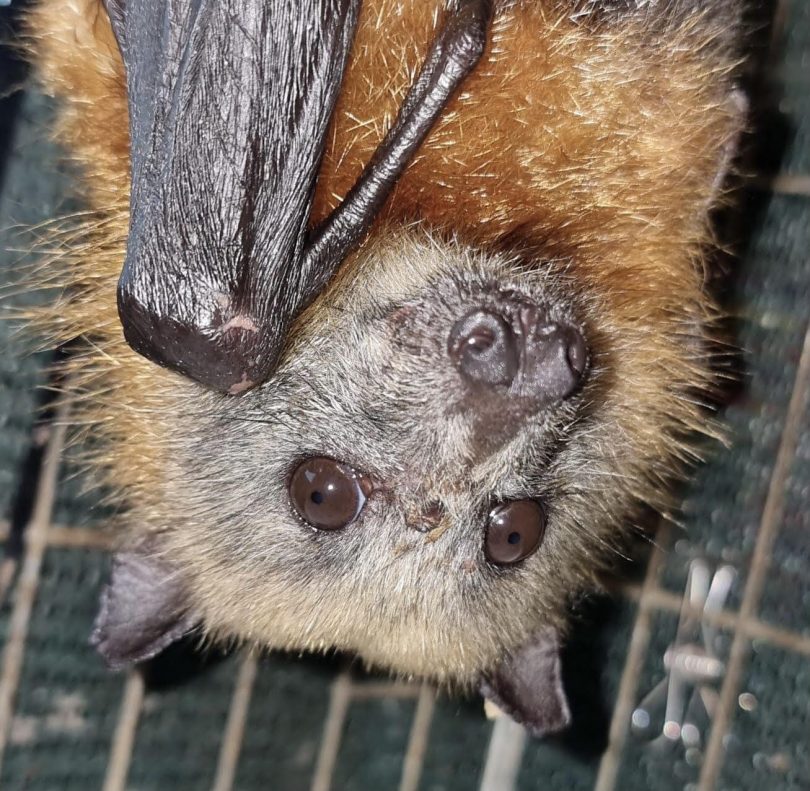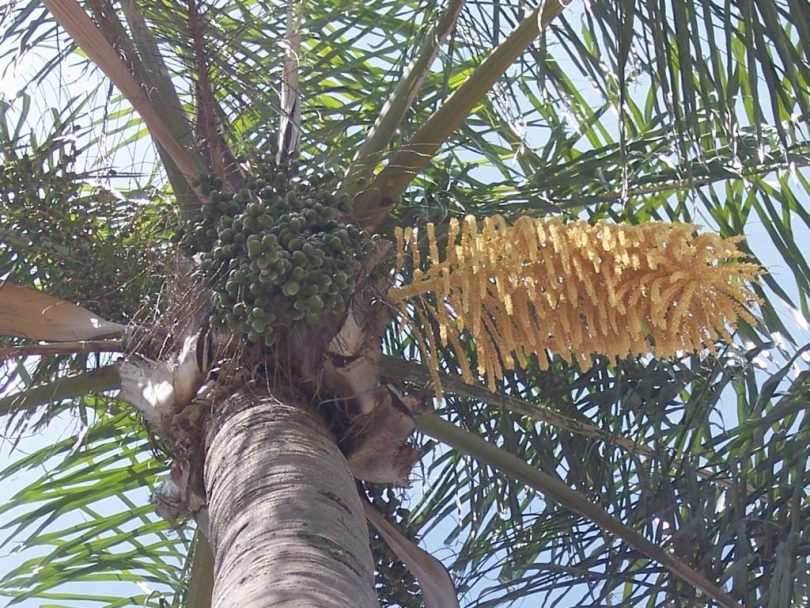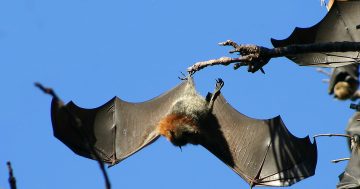
After making a comeback following the bushfires, grey-headed flying foxes are once again under threat, this time from the high rainfall. Photo: Janine Davies.
Starving grey-headed flying foxes are dying in droves after eating the toxic fruit of Cocos palms.
Far South Coast residents can do their bit to reduce the number of animals being poisoned by removing the fruit from palm trees in their gardens as soon as the flowers appear.
Wildlife Rescue South Coast flying fox coordinator Janine Davies says recent heavy rains have destroyed nectar-filled blossoms in our forests. The hungry native bats are substituting them with anything they can find to eat.
“There is a food shortage due to the rain as all the nectar is being washed away and in desperation, our flying foxes are looking for sustenance,” she says.
“Unfortunately eating the Cocos palm fruit can be toxic.”
She says removing the Cocos fruit will help reduce the death toll.
“There are many flying foxes being found deceased at the base of Cocos palms and other trees, some with fruit still in their mouth,” Janine says.
“If the rain continues there will be less nectar and the flying foxes will be finding any food source they can.
“In some instances, the flying foxes are not returning to the colony, but instead are staying in the Cocos palms and we are having more deaths.”
READ ALSO: Eurobodalla’s flying fox numbers drop to lowest in almost a decade
Flying fox wings can also get caught in the flower sheaths or leaves and the seeds can cause severe constipation resulting in dehydration and death in younger flying foxes.
The Black Summer Bushfires wiped out entire flying fox colonies on the South Coast and the animals that survived had limited food sources in the charred native bushland.
The NSW Department of Planning, Industry and Environment estimated 68,500 NSW flying foxes died due to drought, fire and heat stress in 2019/20.
Janine says the Cocos palm is a weed that can play havoc with local nectar-loving wildlife.
“If people have them, we beg them to cut down the fruit as soon as the flowers appear,” she says.
“Not only does this save animals but also the hard work that is involved cleaning up the mess of the fruit falling to the ground and therefore seeds being spread.”

Cocos palm fruit and flowers. Photo: NSW DPI.
Flying foxes are critical to the preservation of our native food trees and eucalyptus forests and the many species that depend on the them and people are being encouraged to lend them a hand.
“If you have fruit trees please consider allowing the animals to consume some of the fruit. They, too, need to eat fruit that isn’t going to kill them,” Janine says.
“Flying foxes are our nighttime pollinators and are a keystone species.
“They are not the evil, dirty creatures made out in movies and books and we endeavour to educate the public on these amazing animals.”
READ ALSO: Canberra’s ‘micro-forest maker’ looks to Eurobodalla for her next project
If anyone encounters any flying foxes, even deceased, they should contact a local wildlife rescue group so that a vaccinated and trained rescuer can attend.
“Under no circumstances are people to handle any species of bats unless they’re vaccinated,” Janine says.
If you do get bitten or scratched, the bat will need to be immediately euthanised and sent for testing for Australian bat Lyssavirus.
You will also need to undergo a course of up to five injections to protect you from the Virus which can be fatal to humans.
Call South Coast Wildlife Rescue on 0417 238 921 to report dead or injured flying foxes on the Far South Coast.








